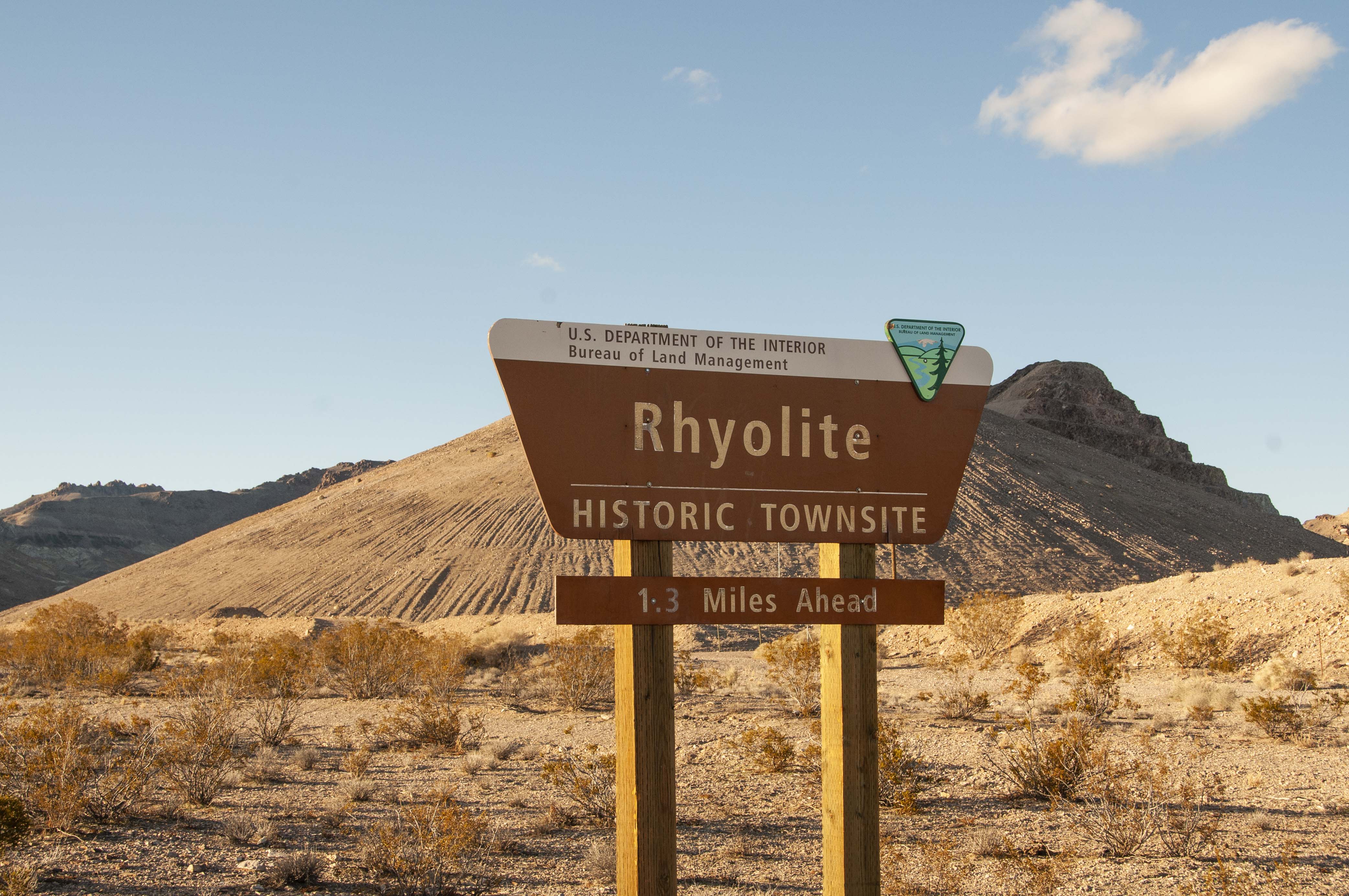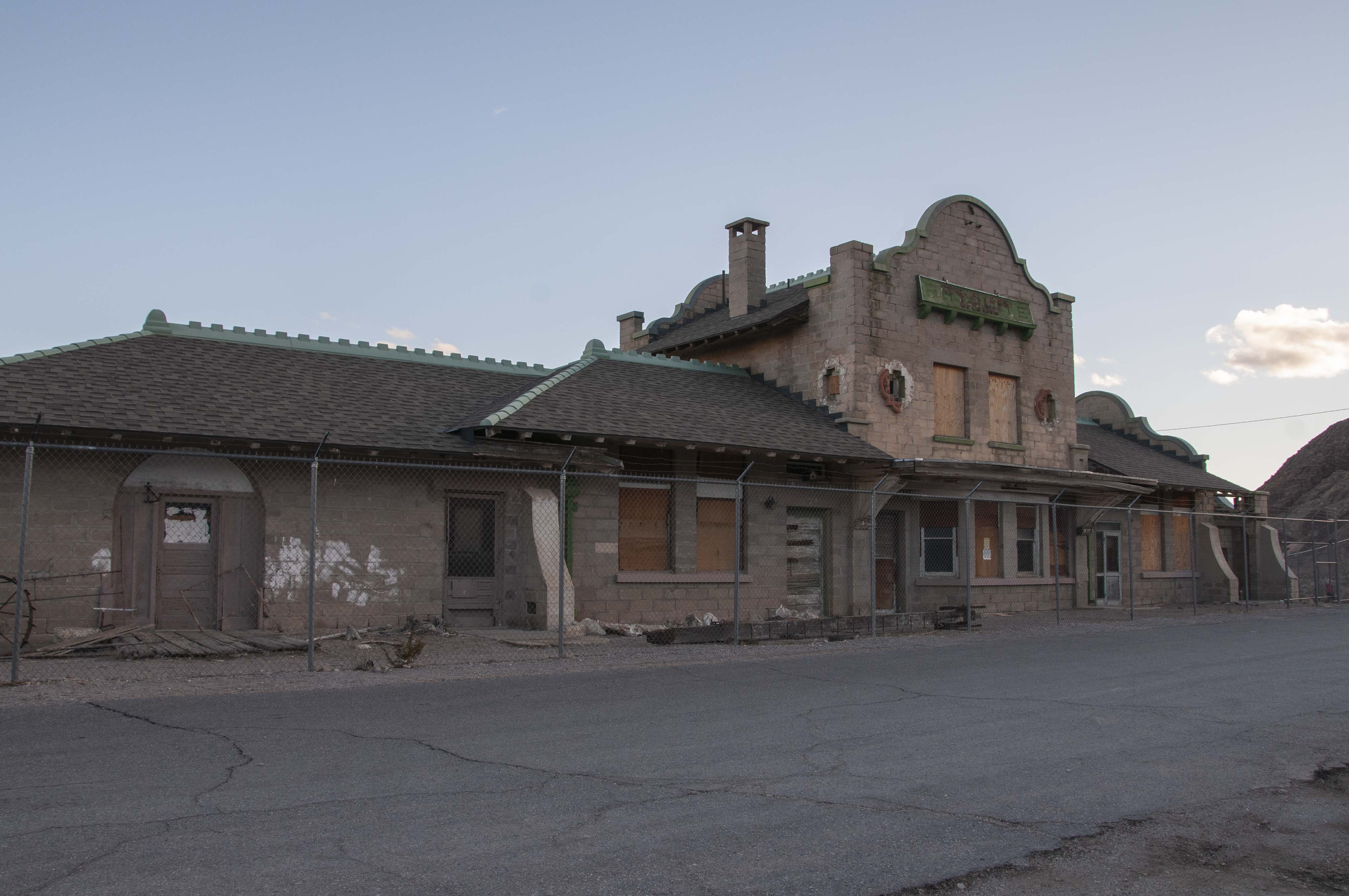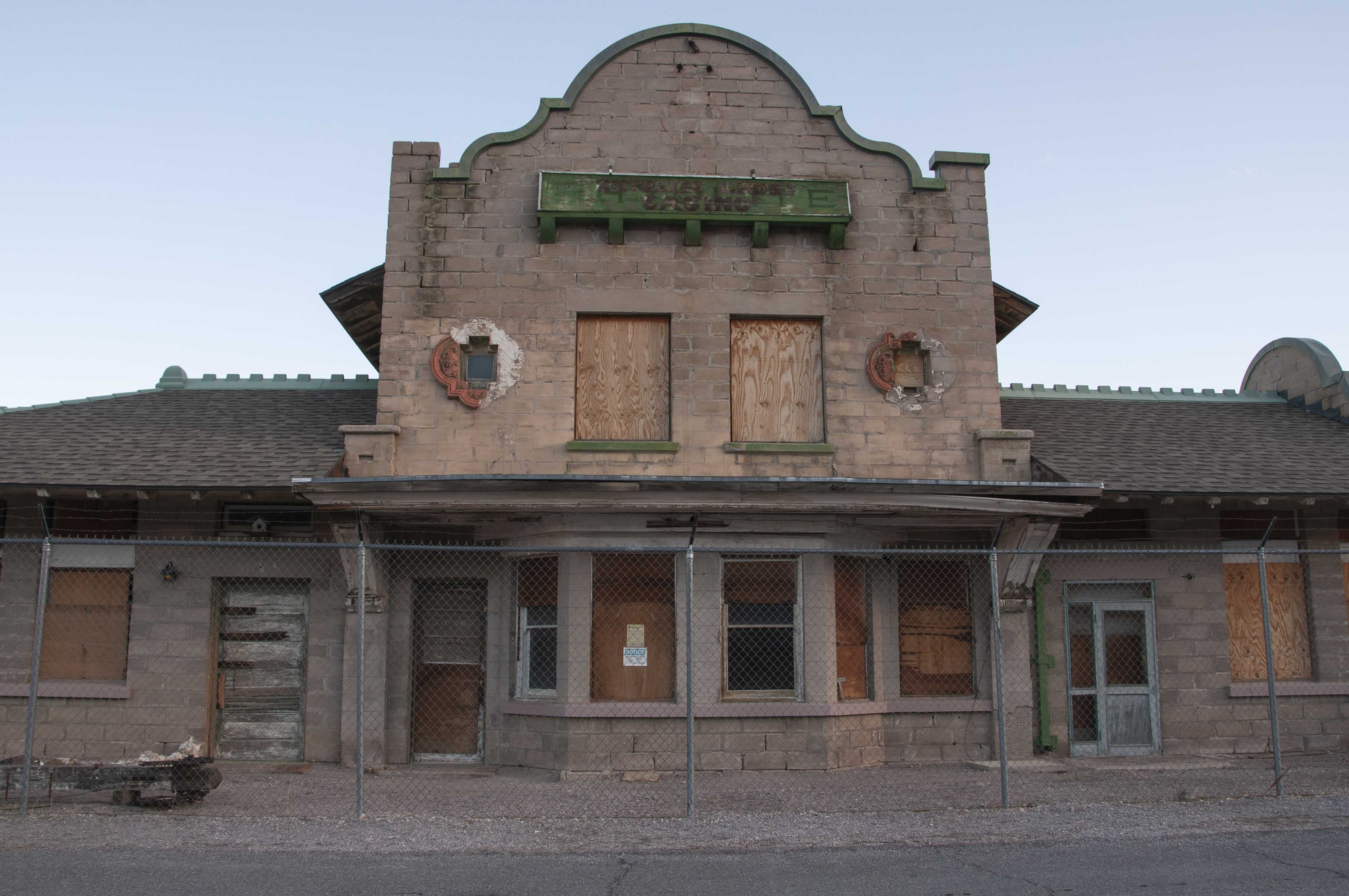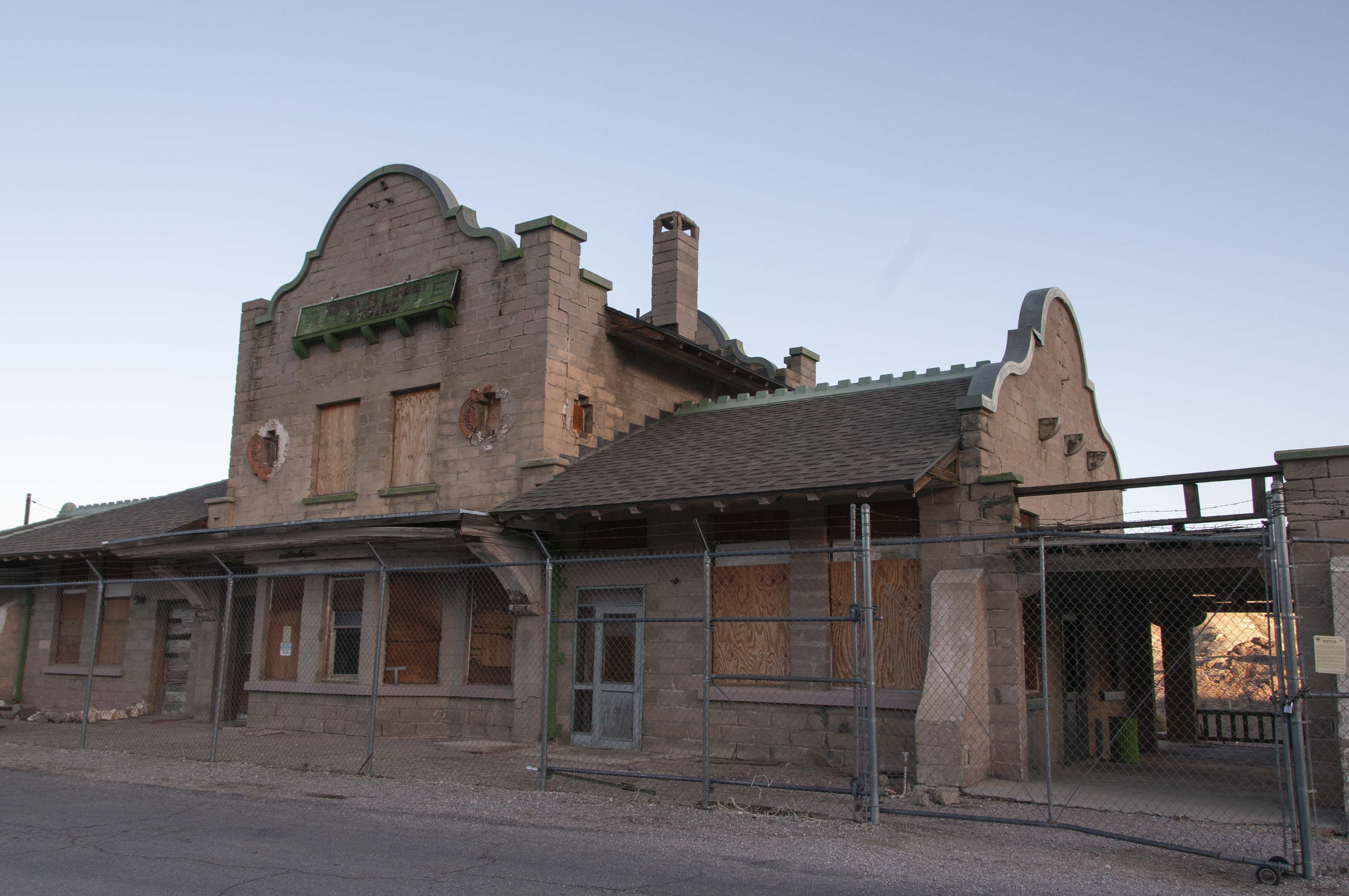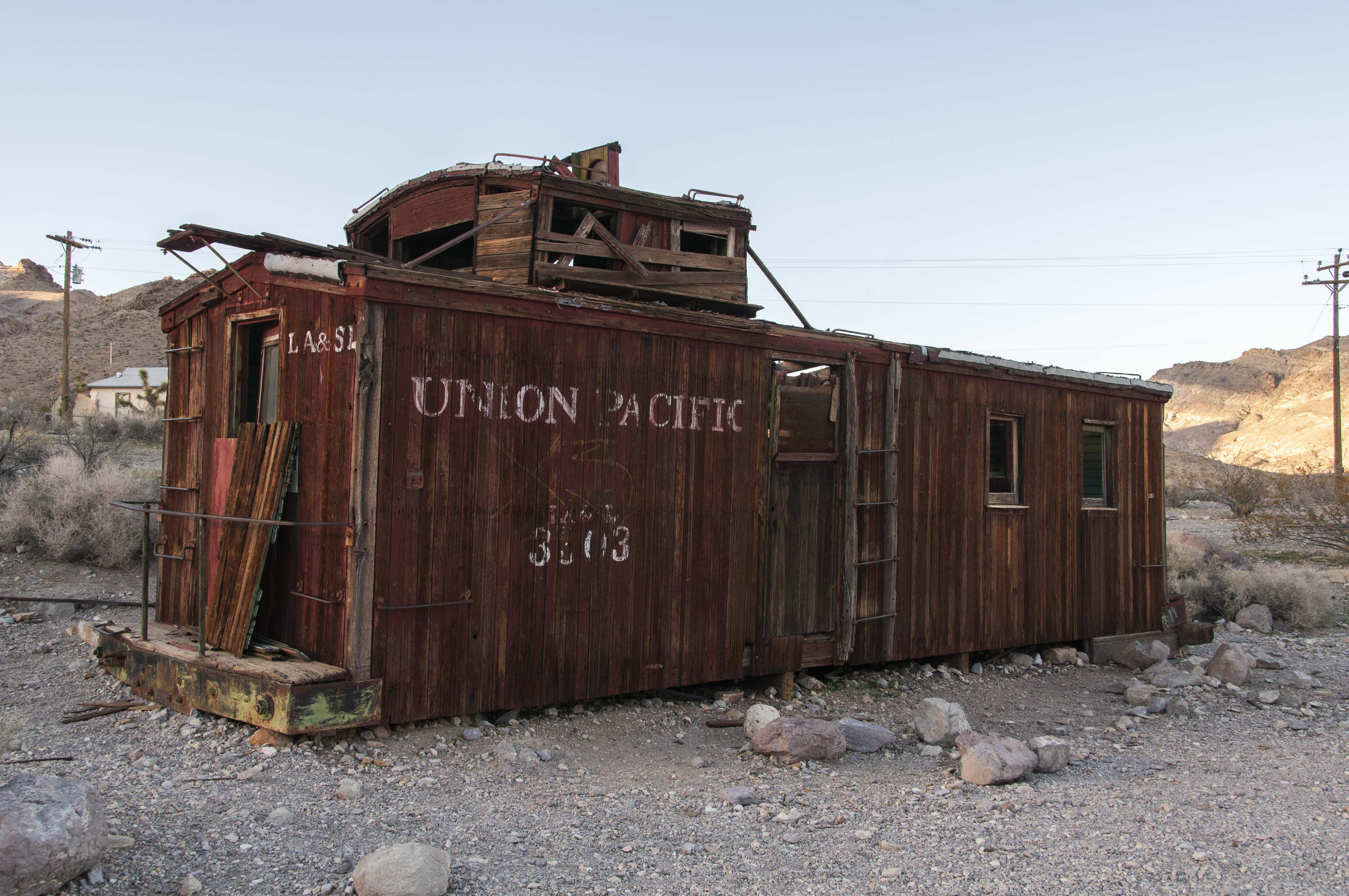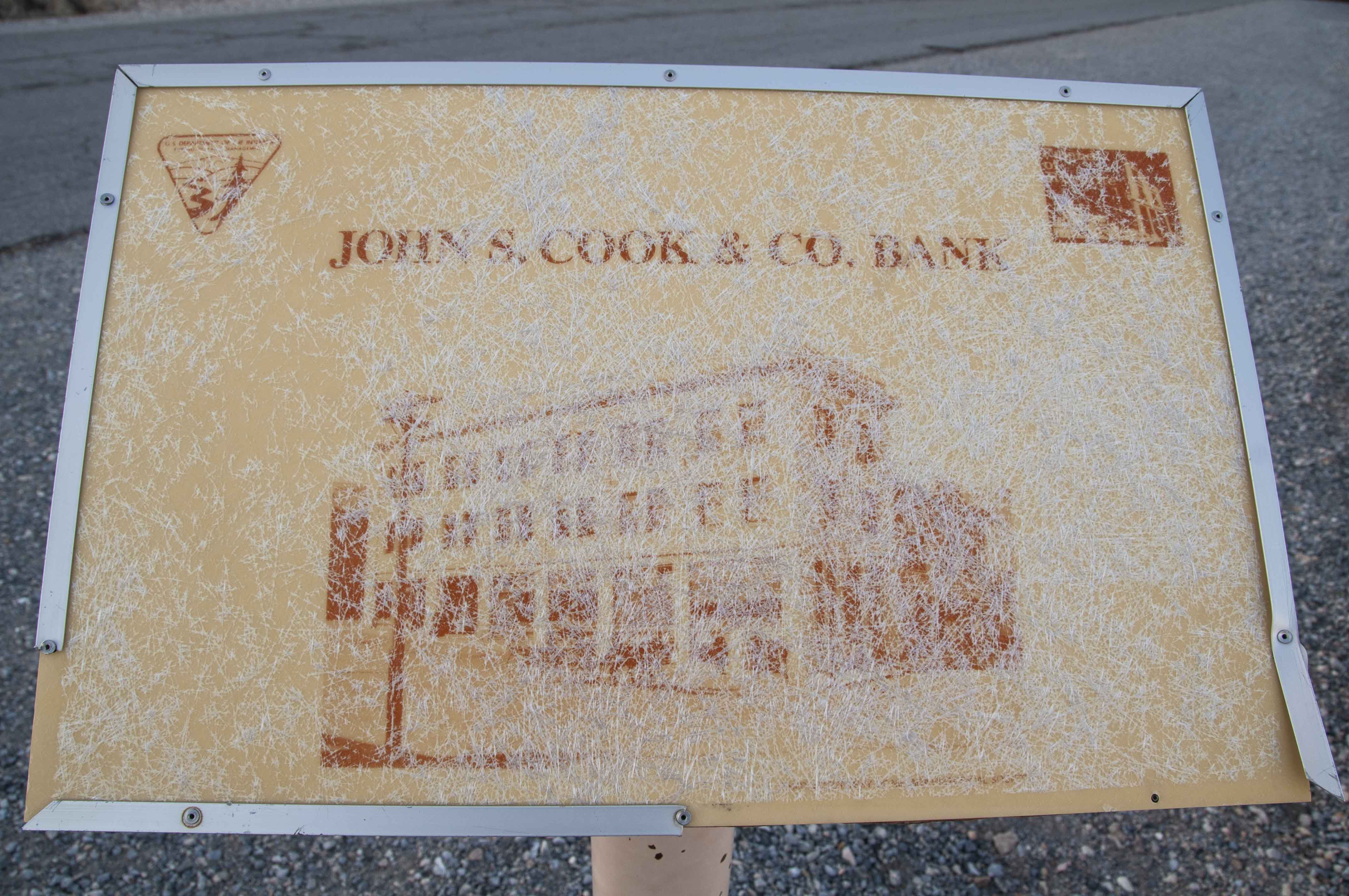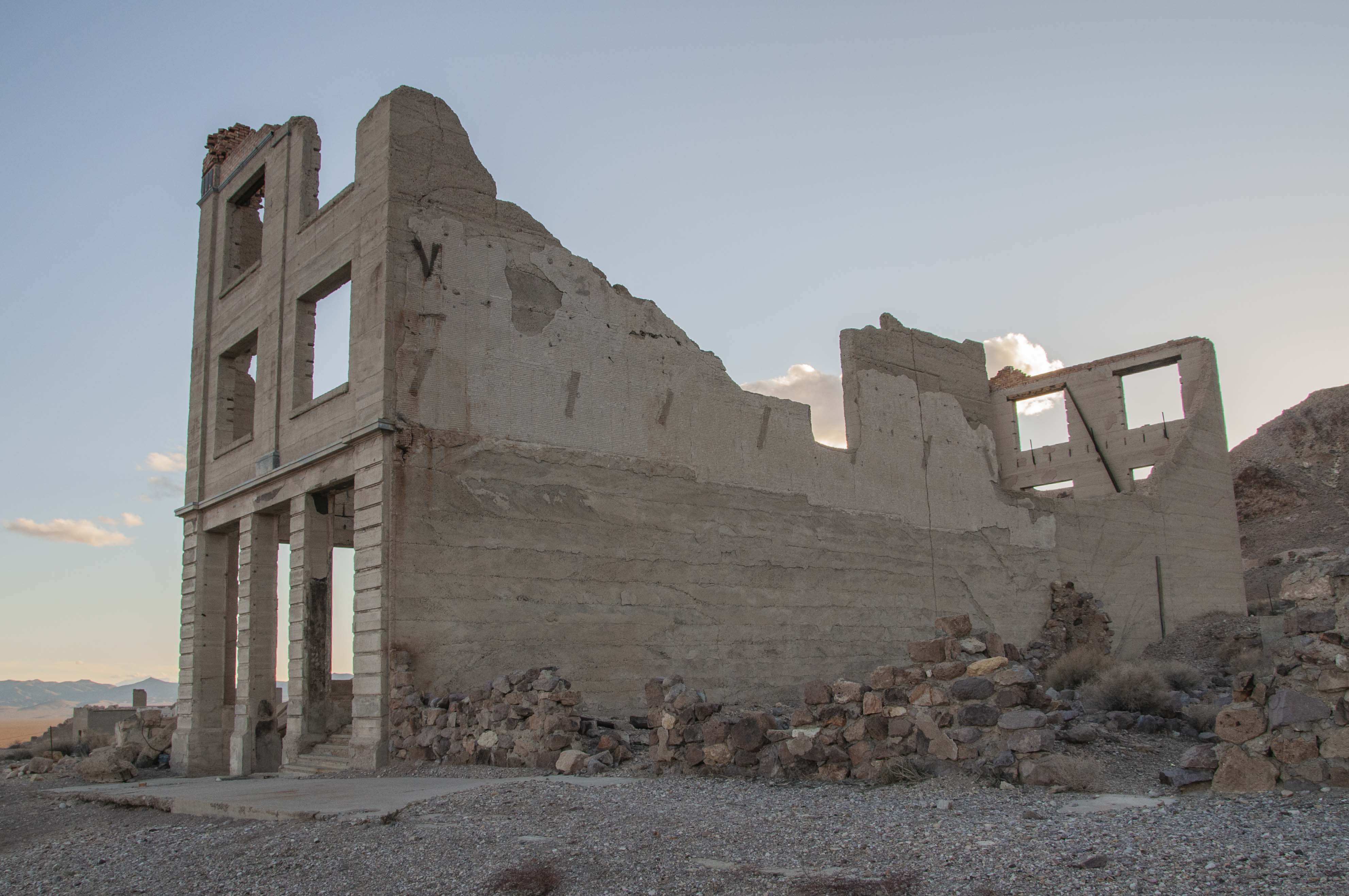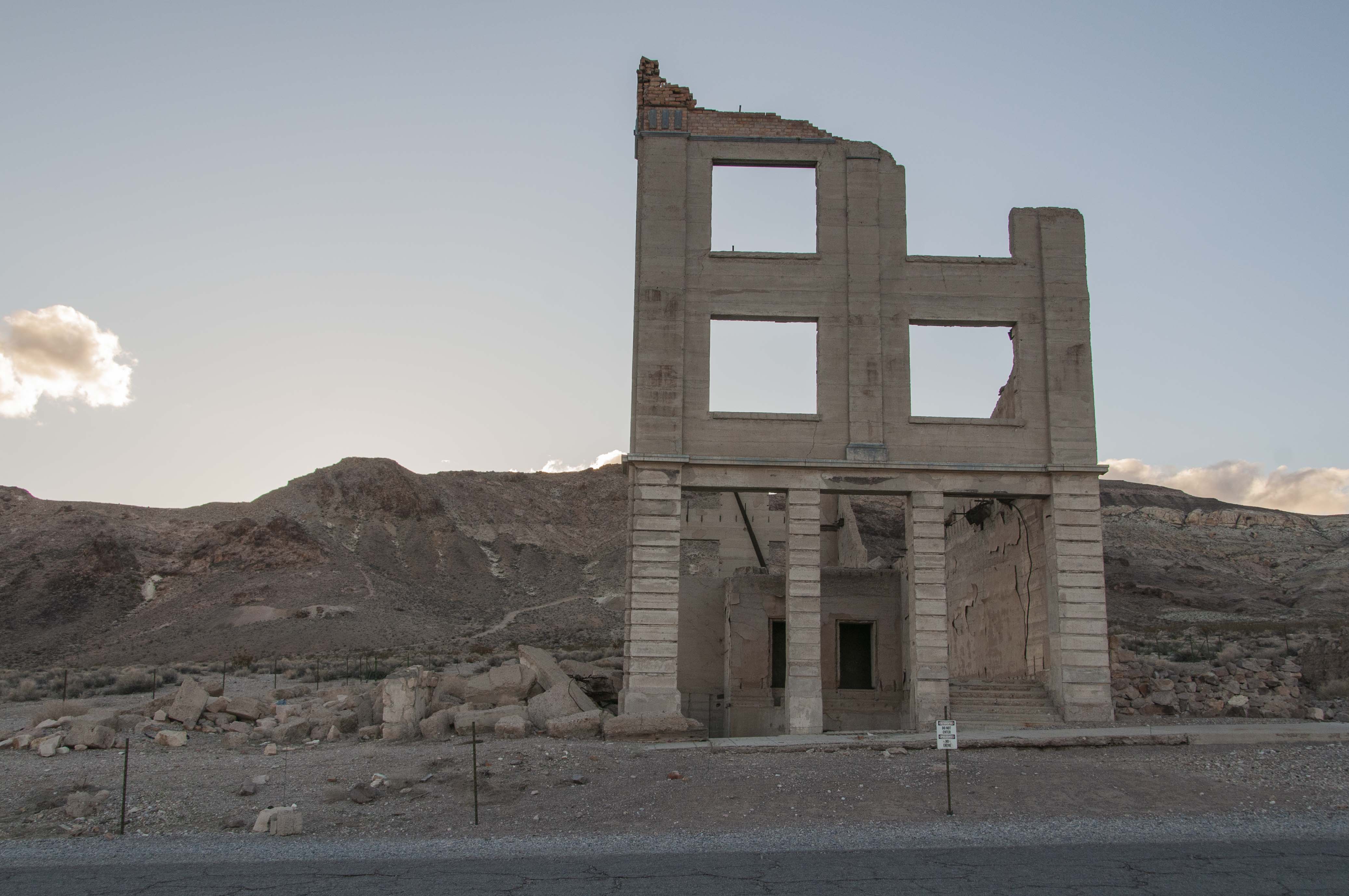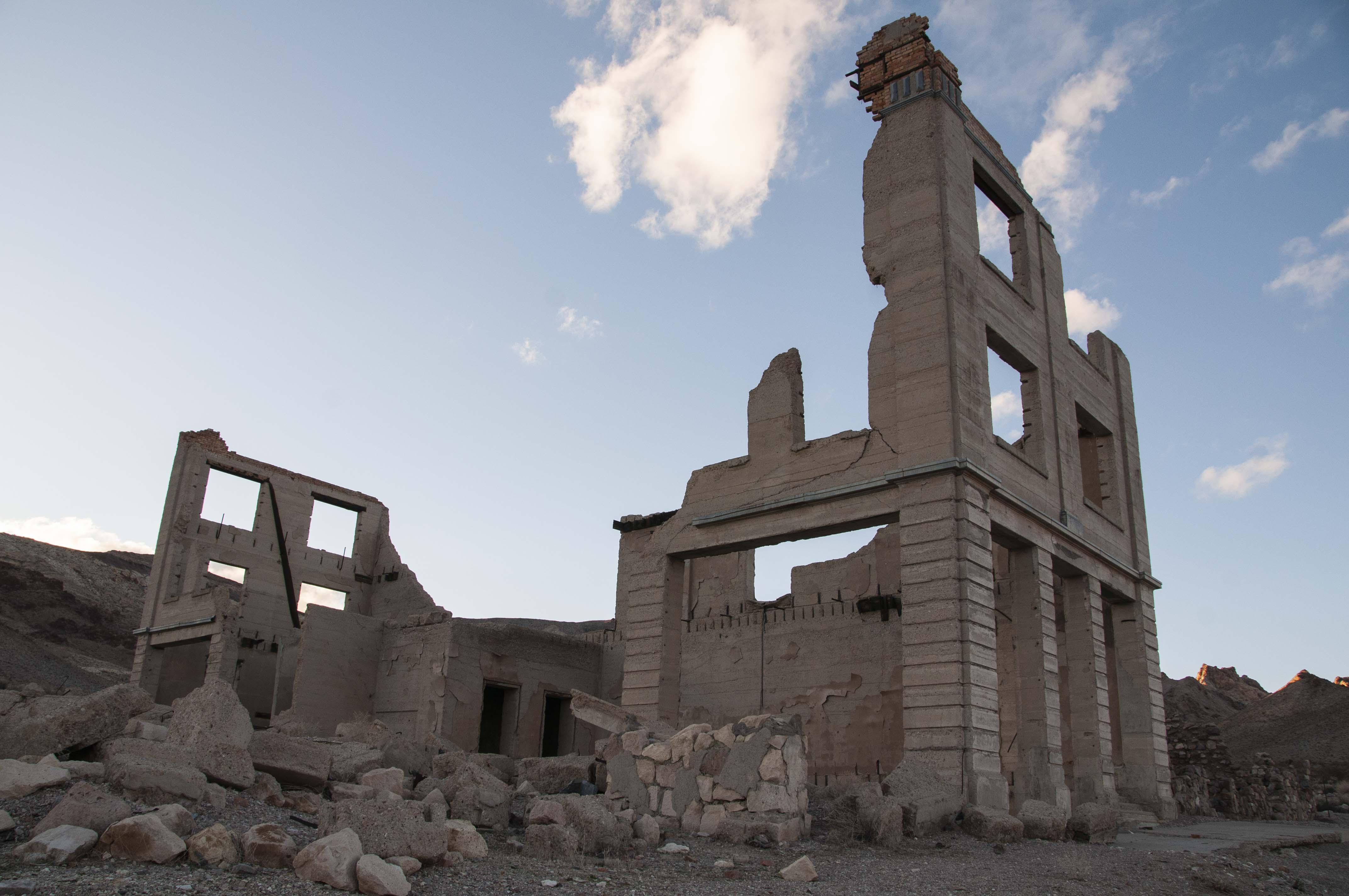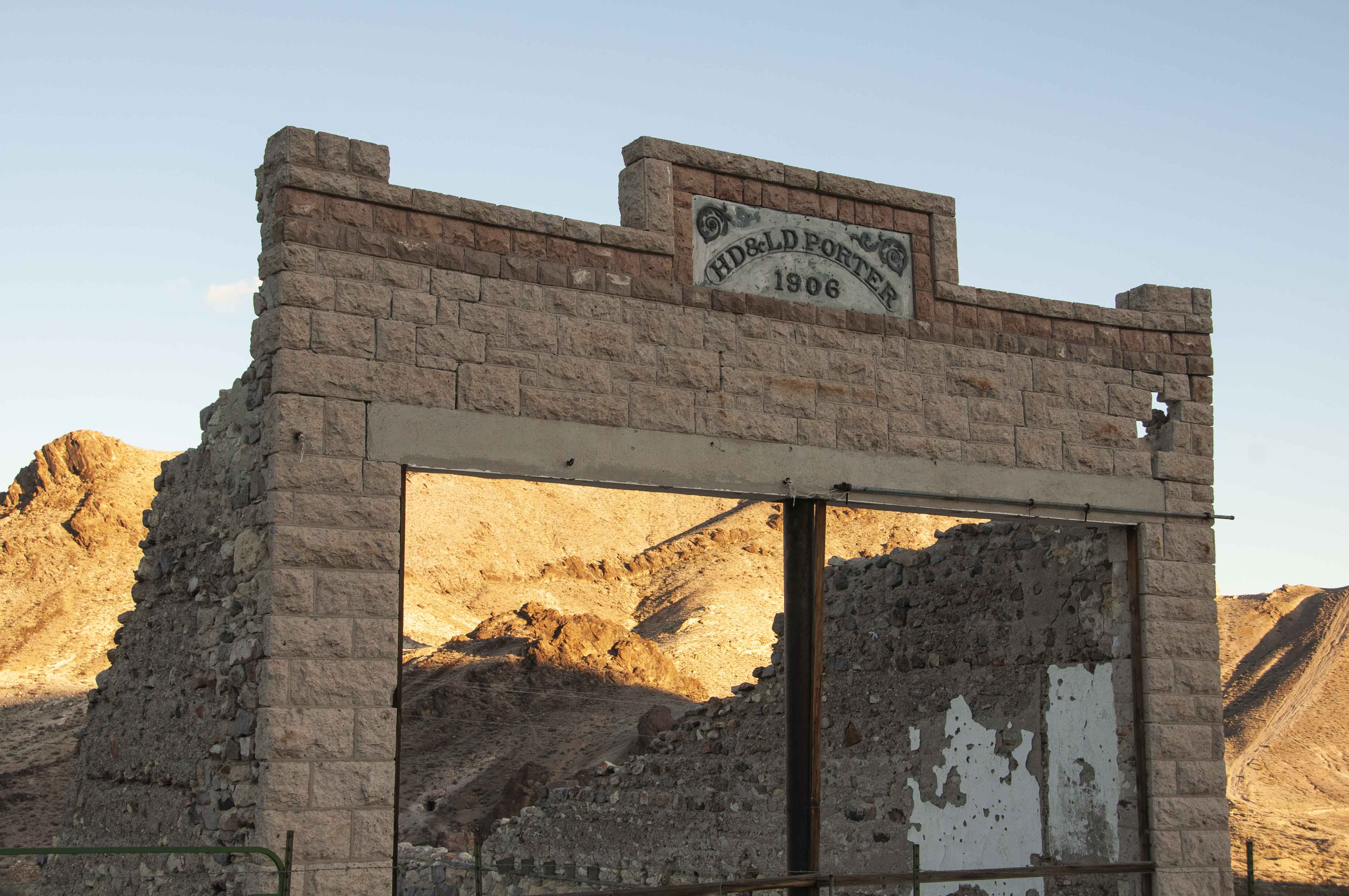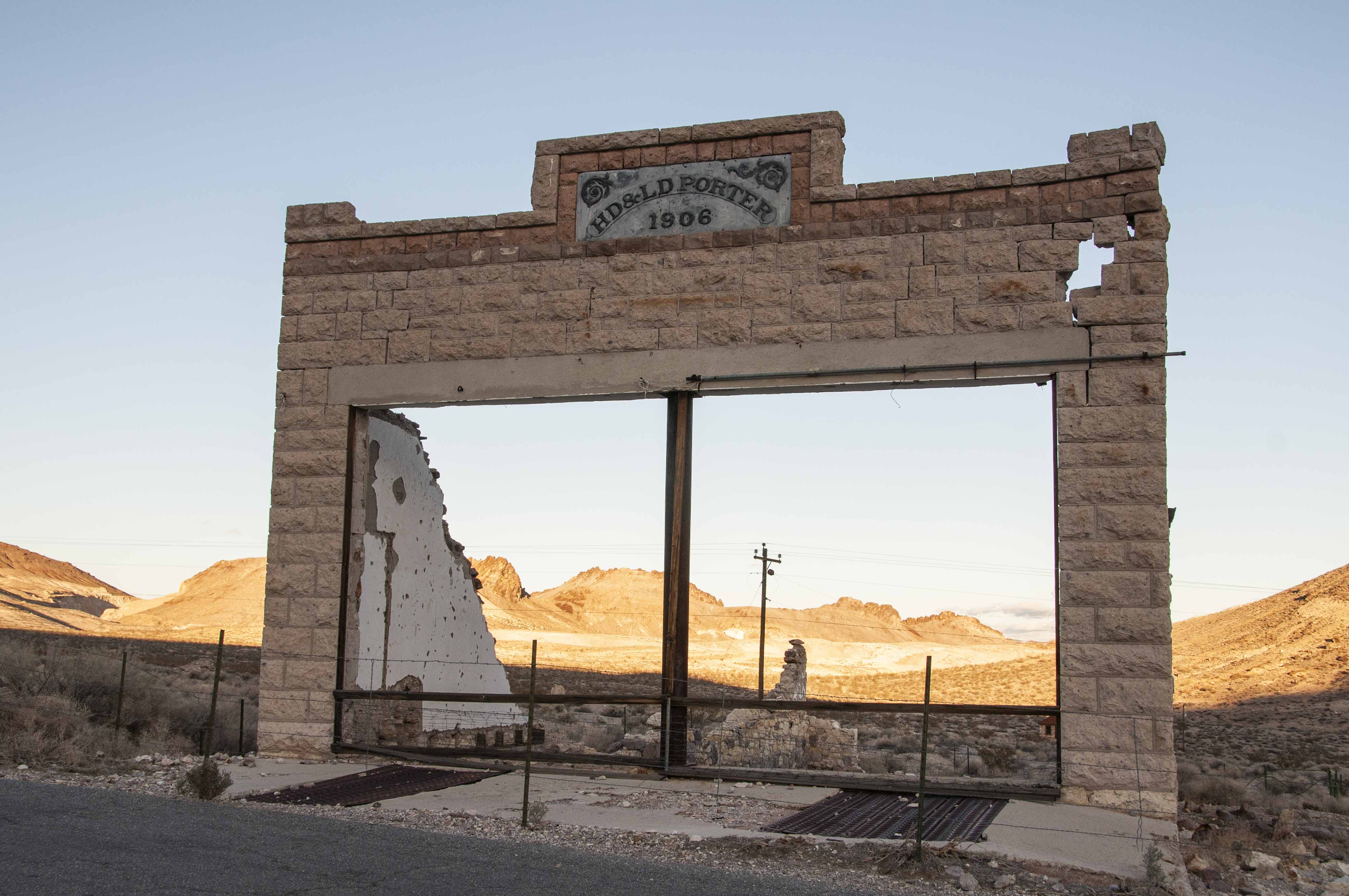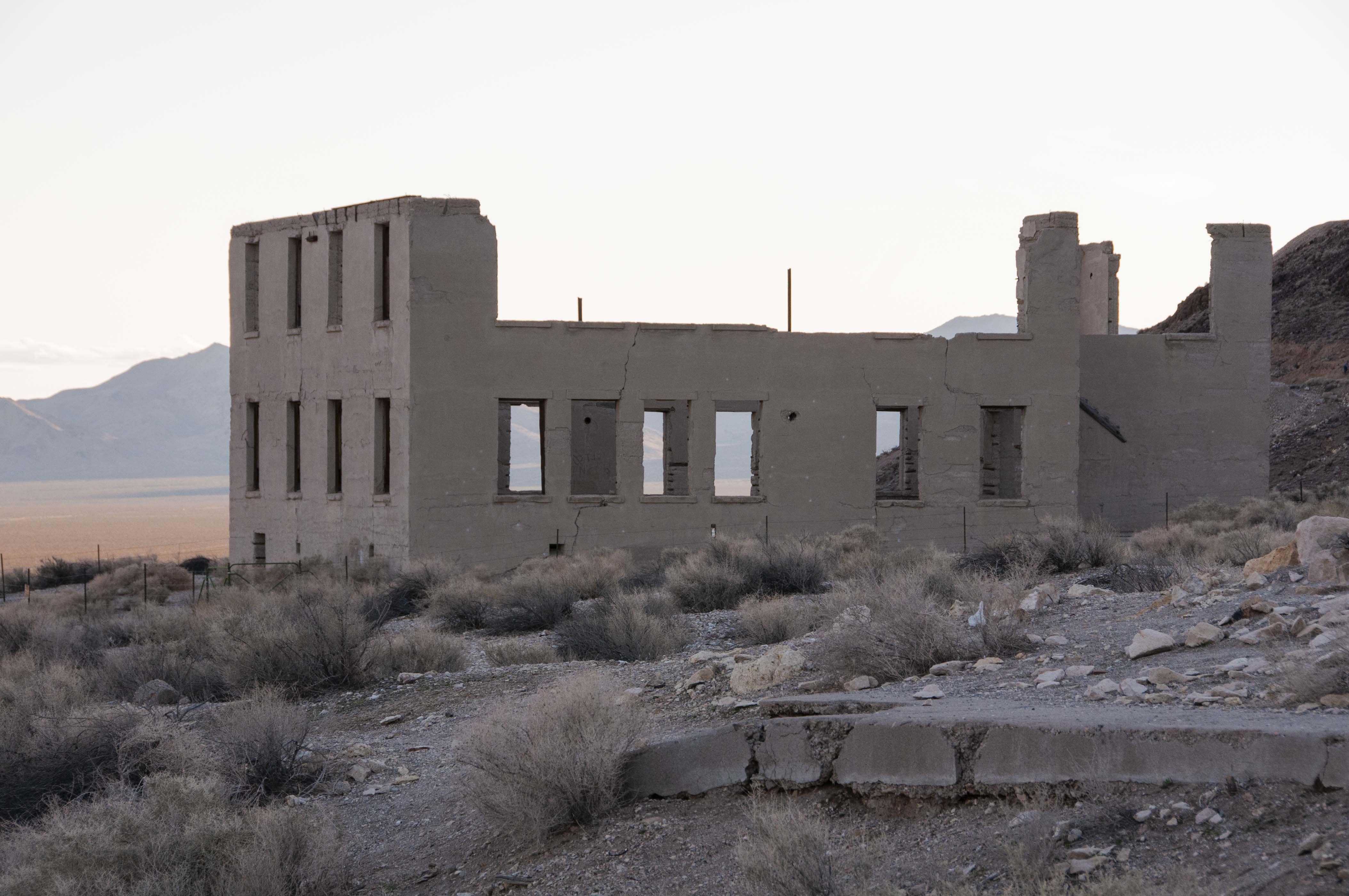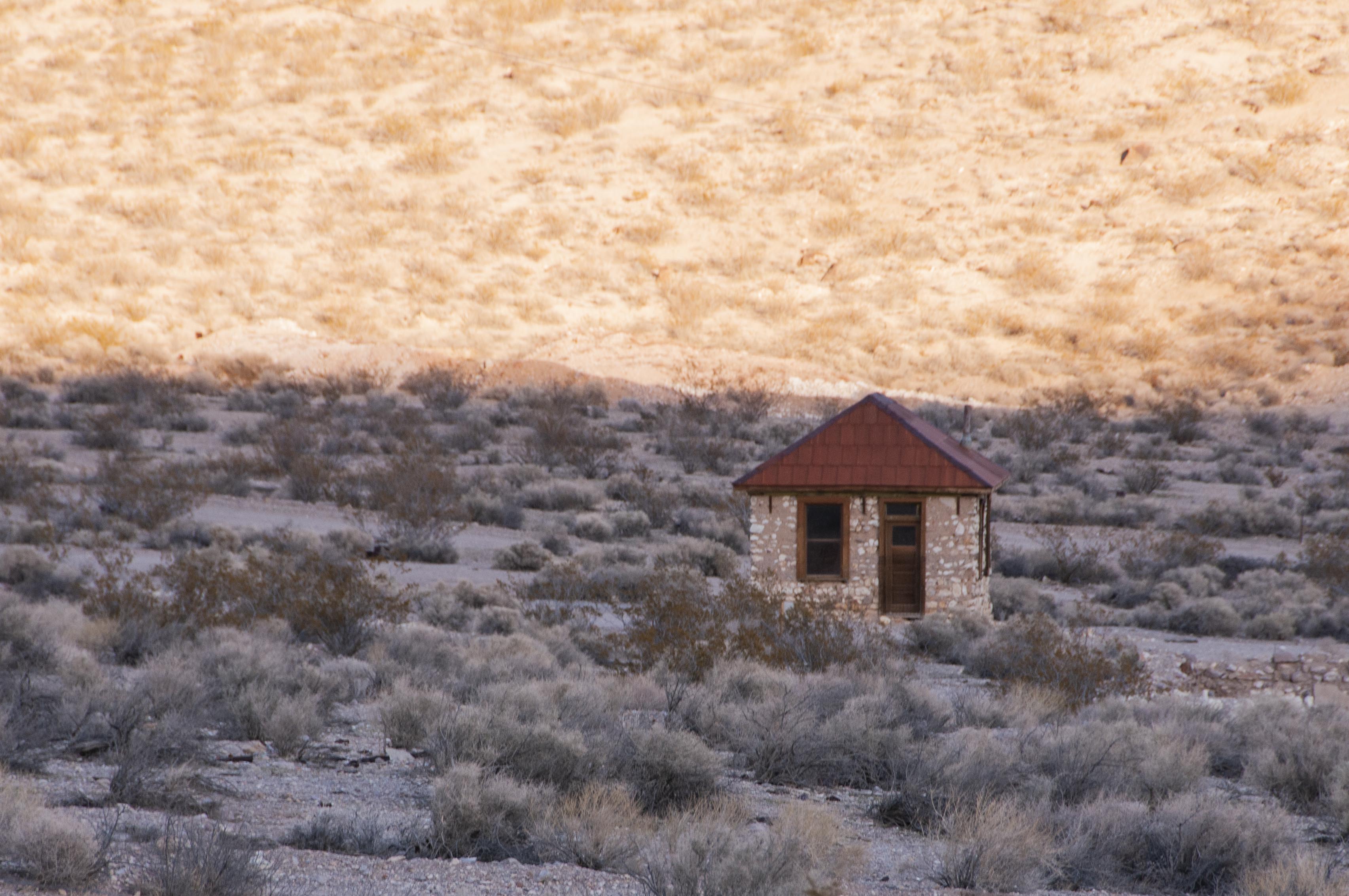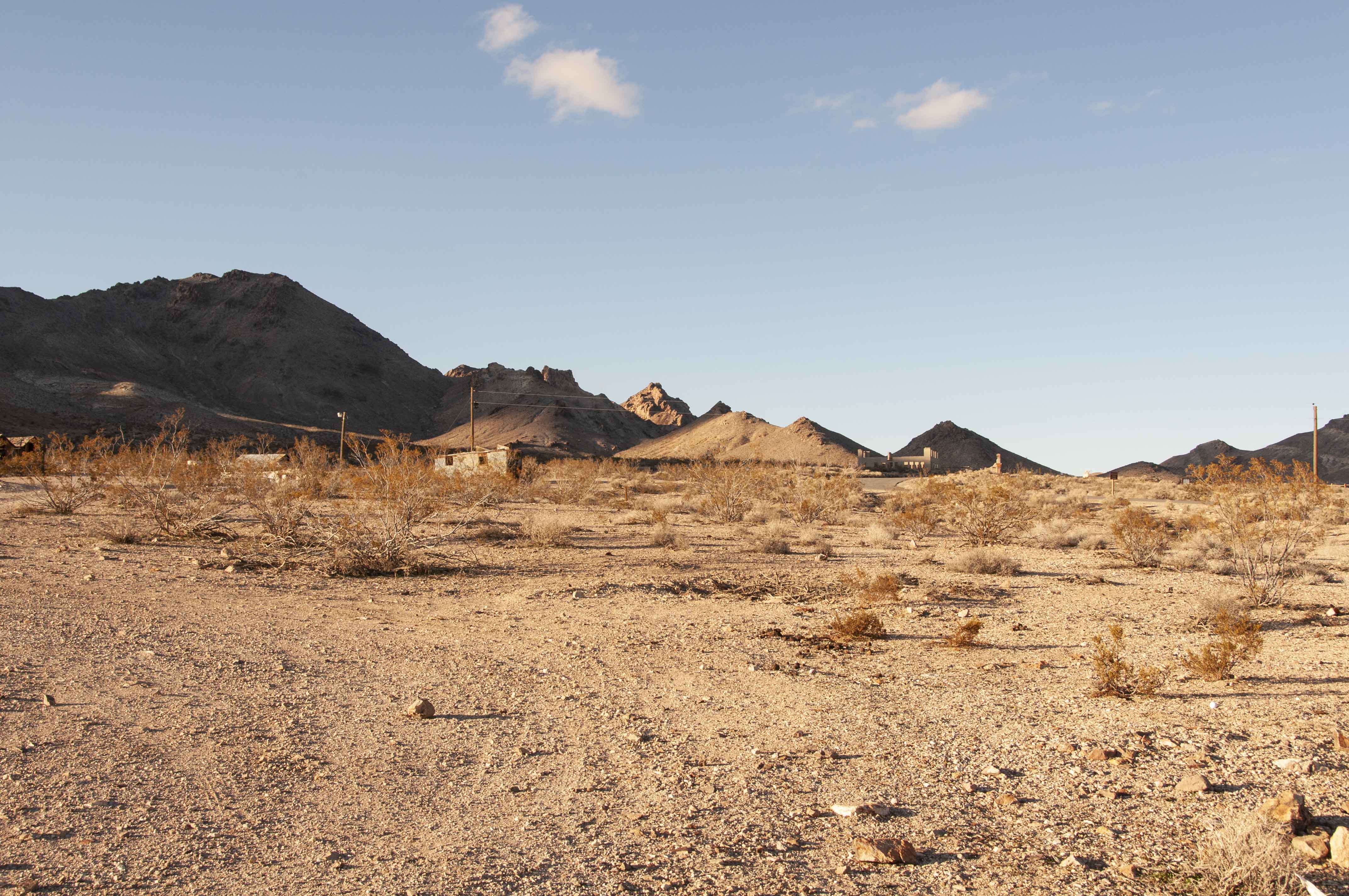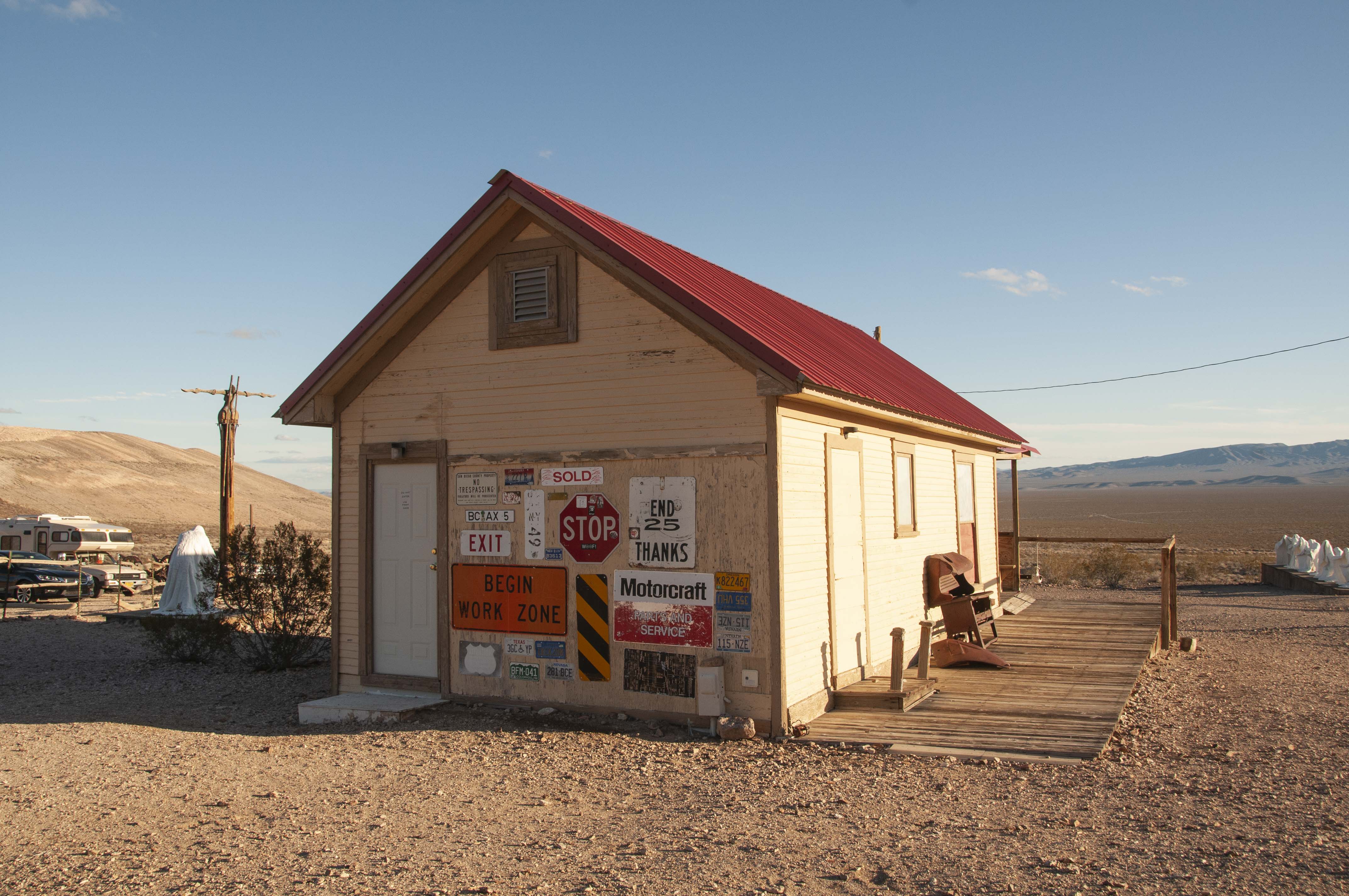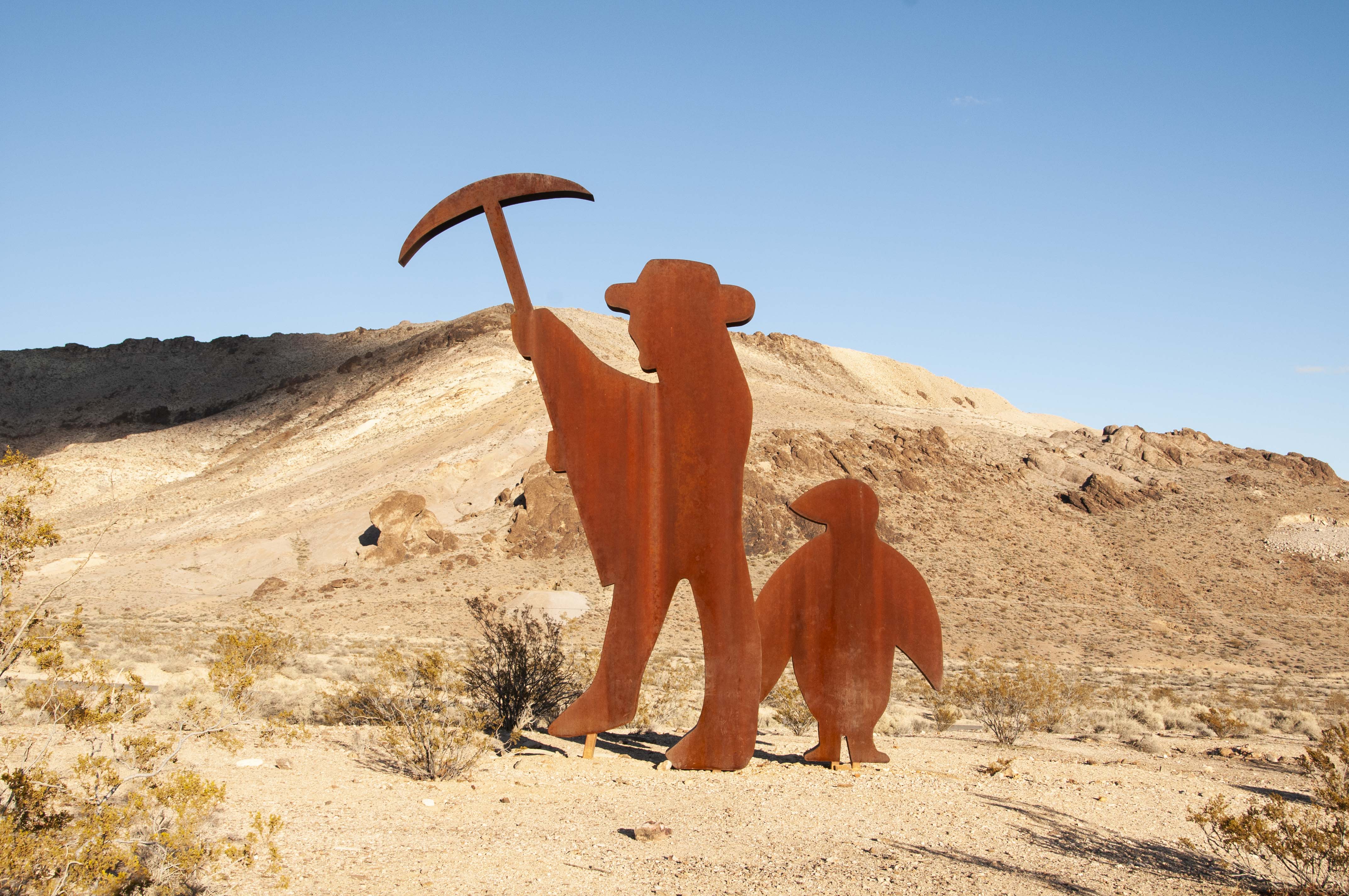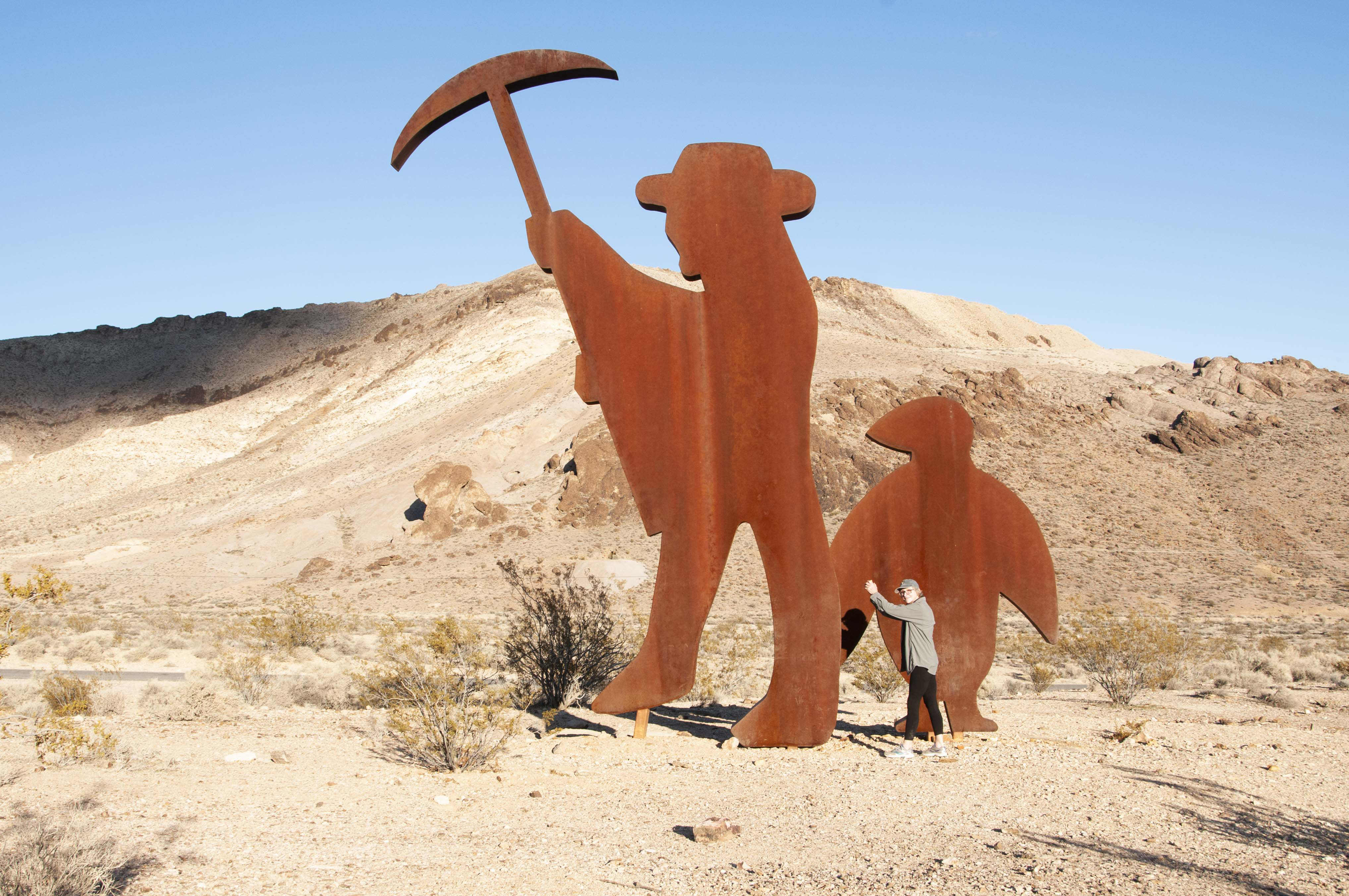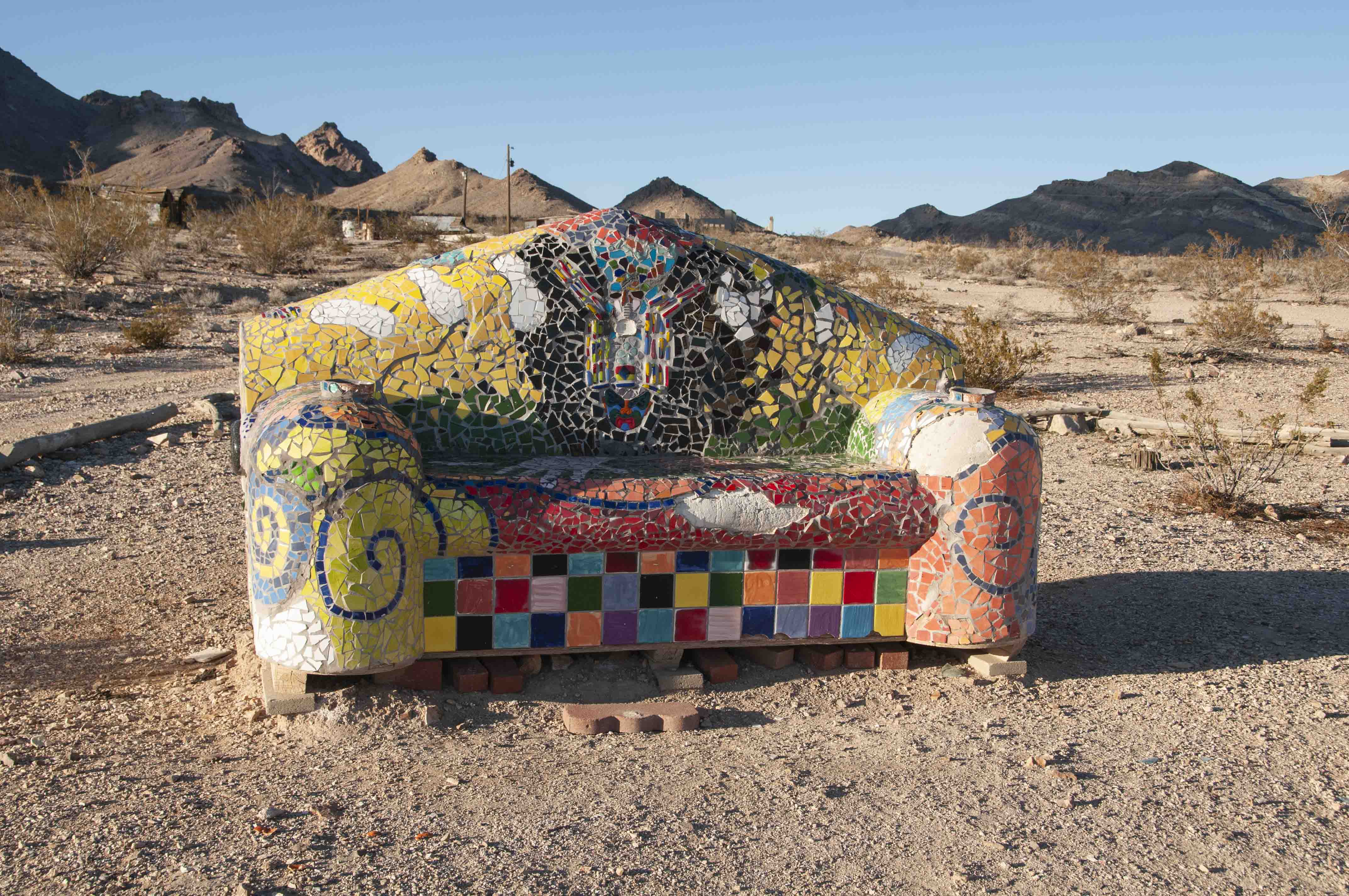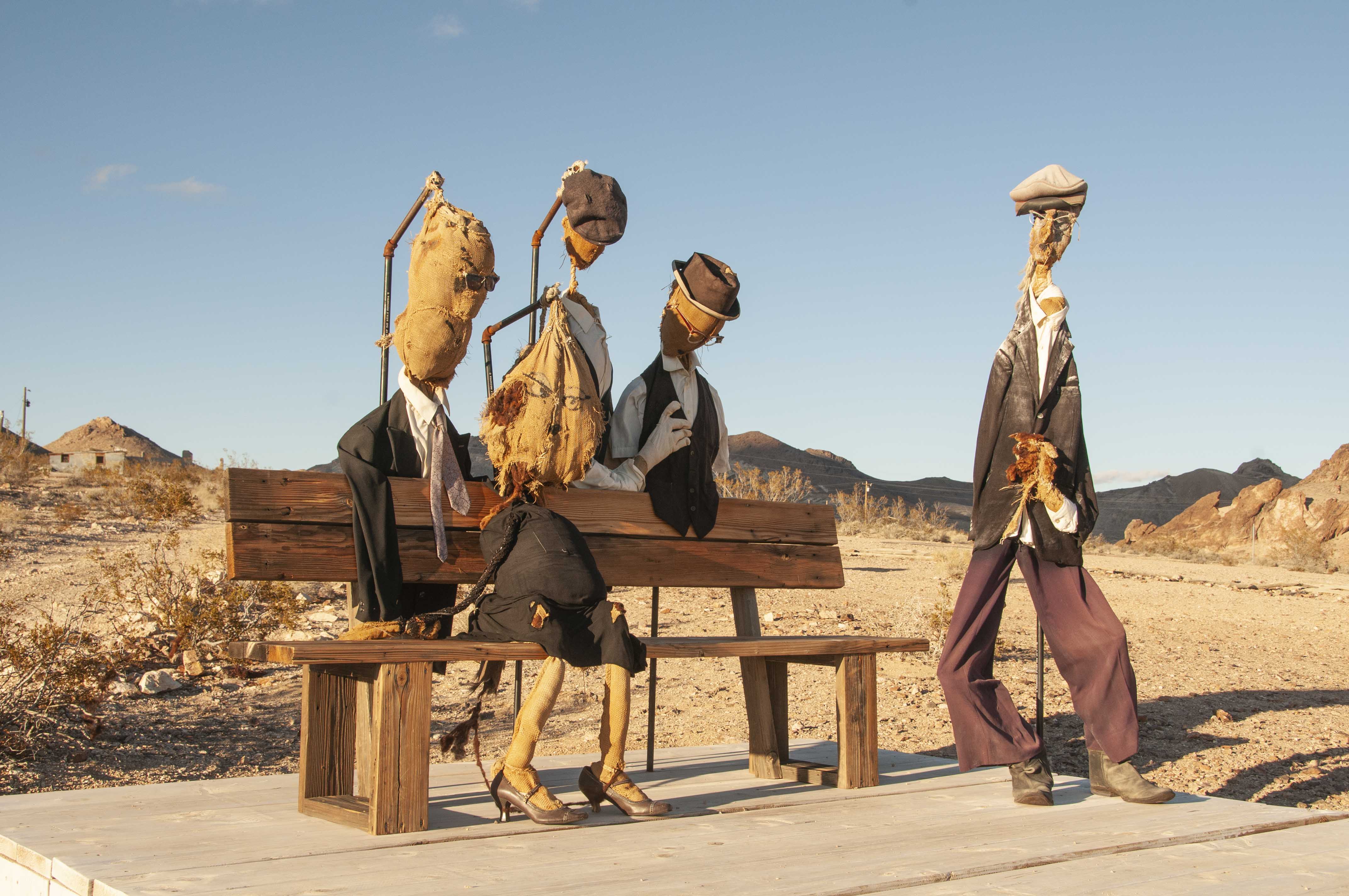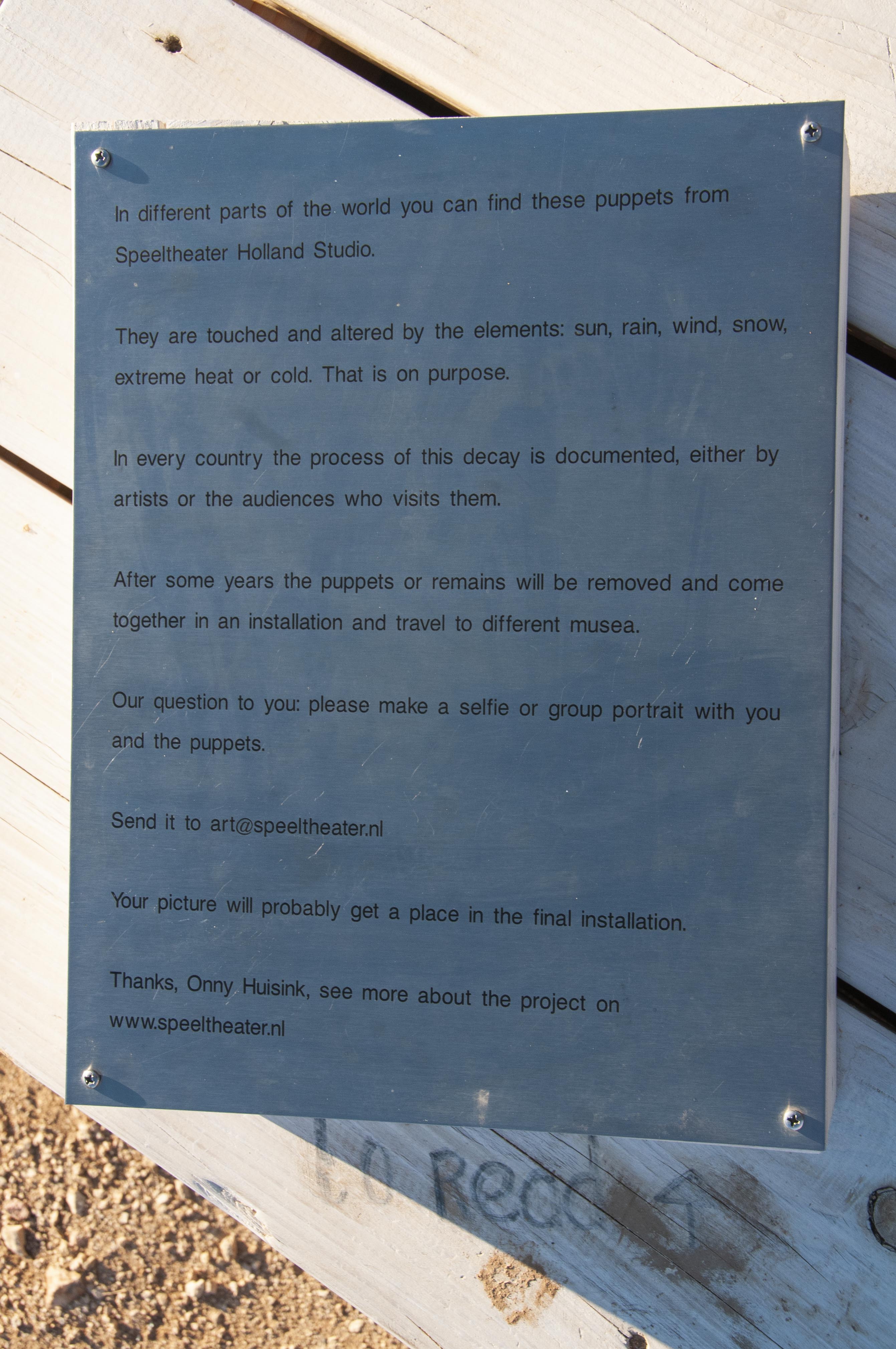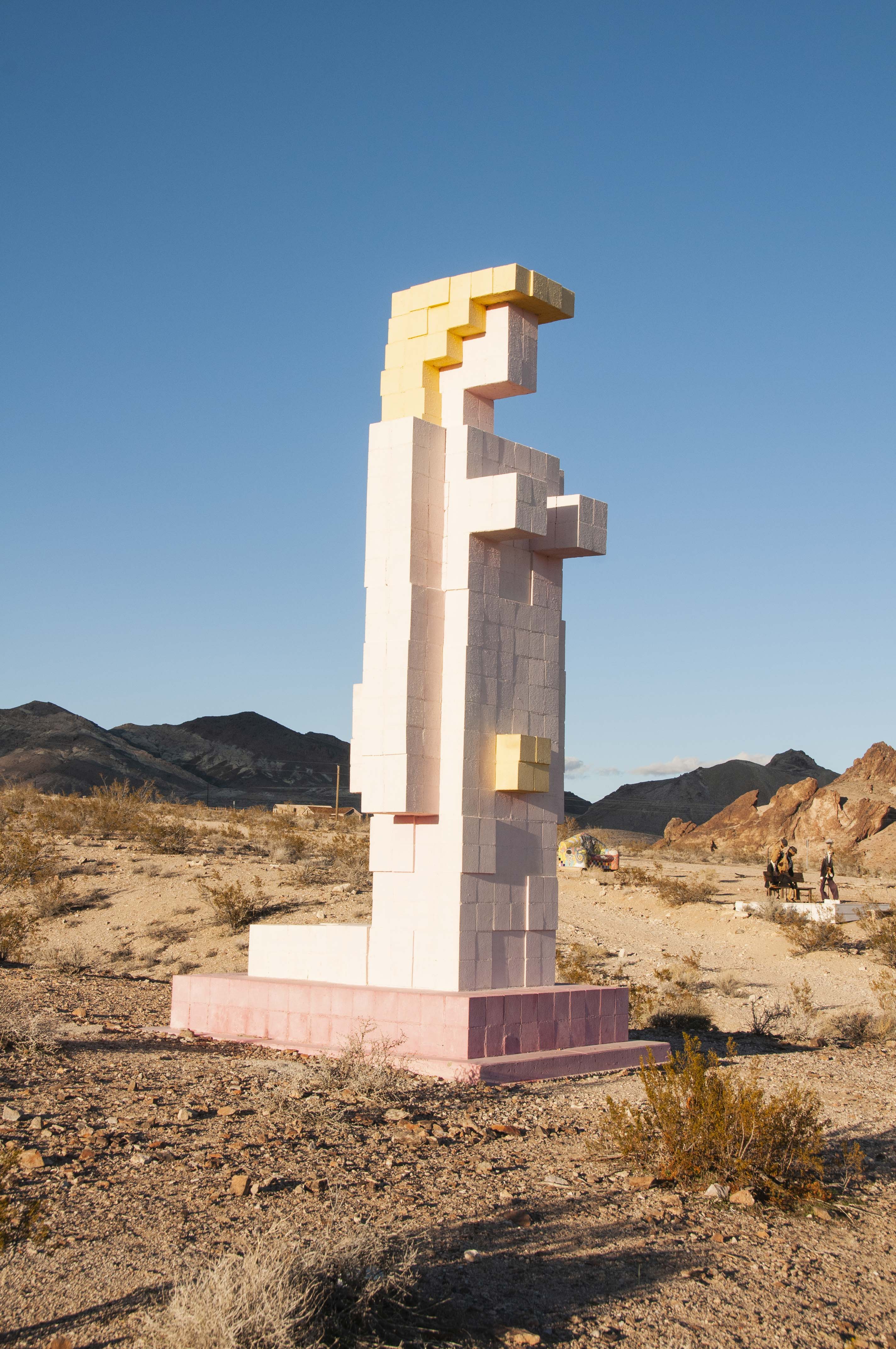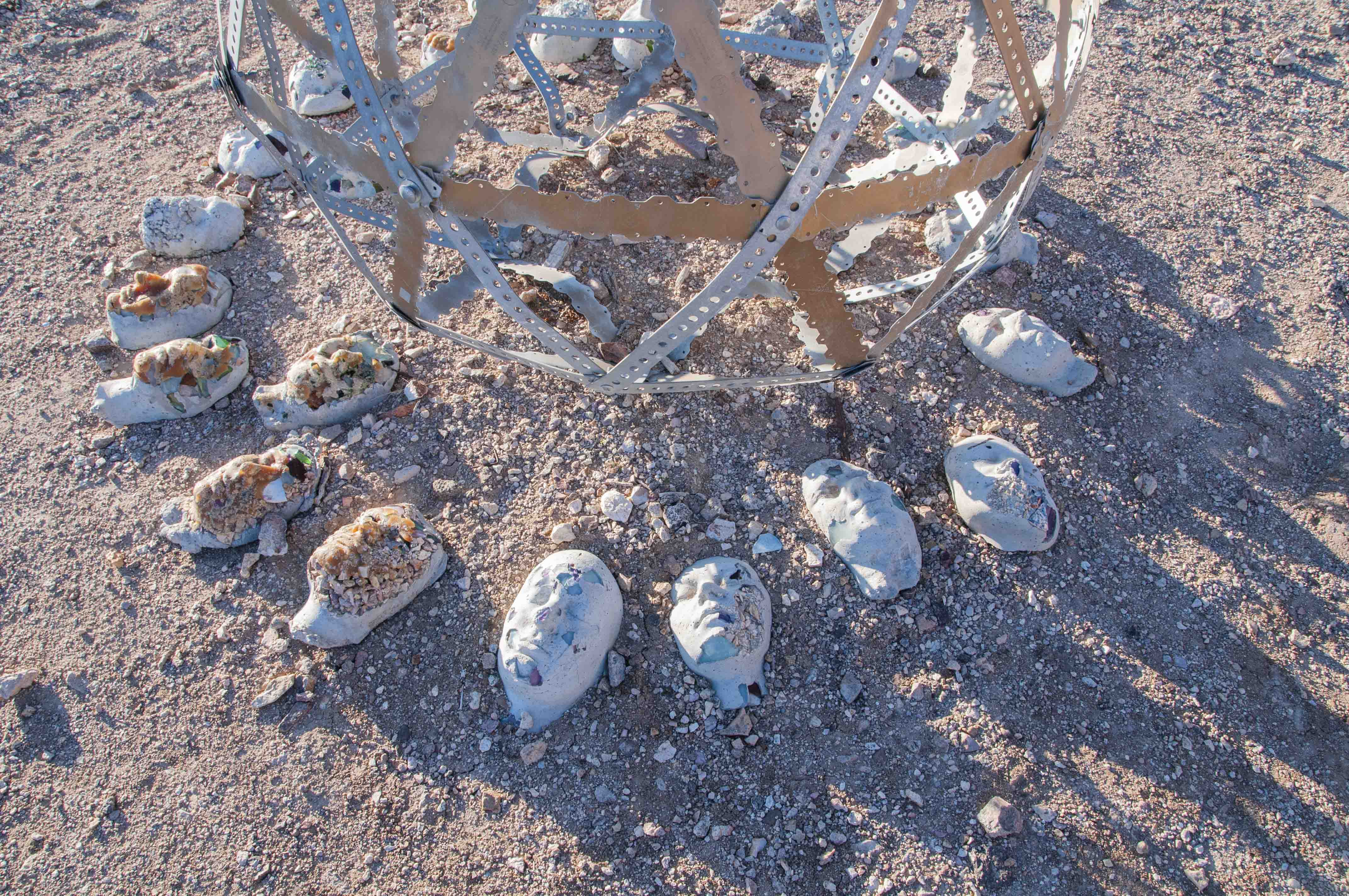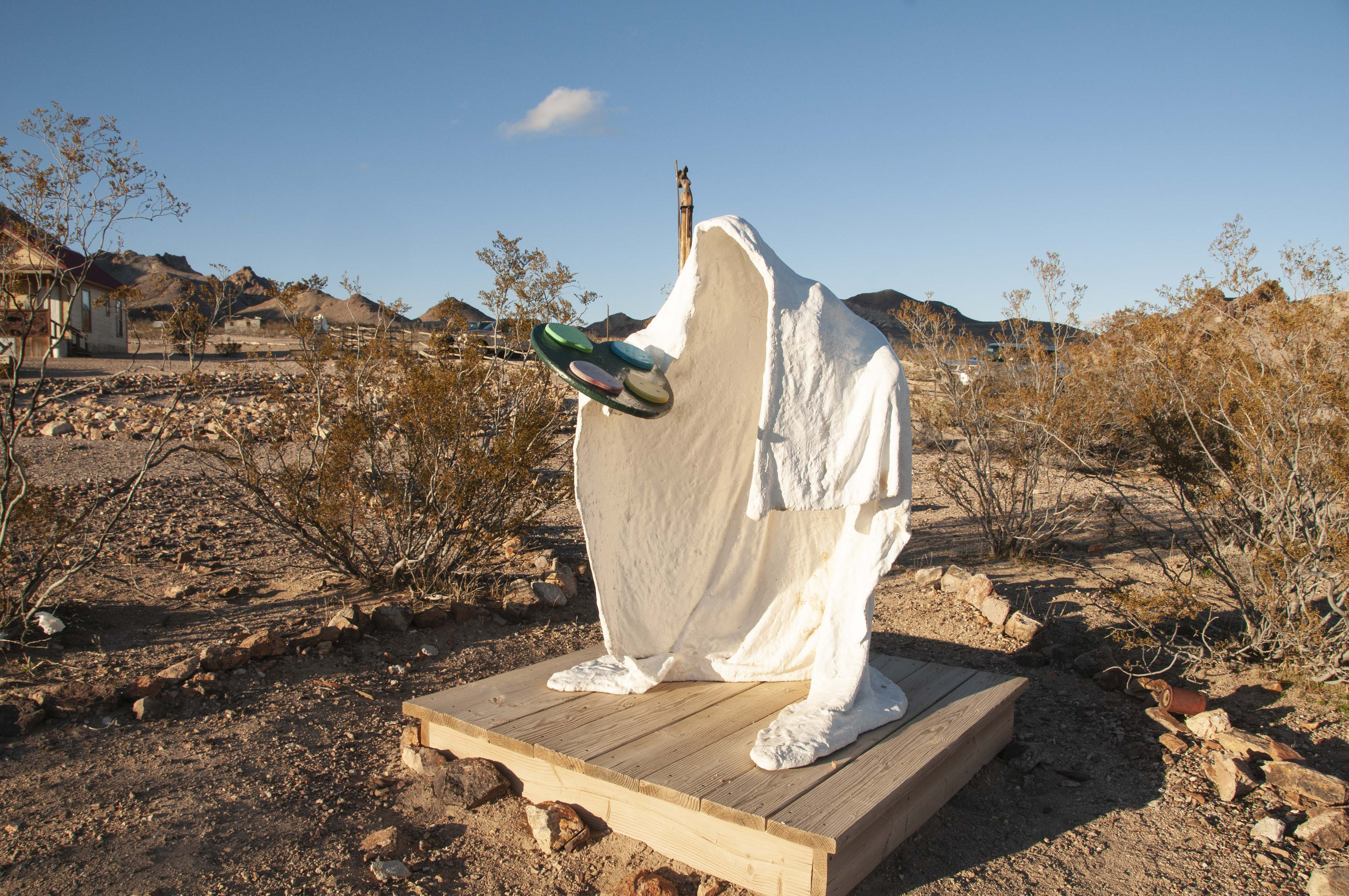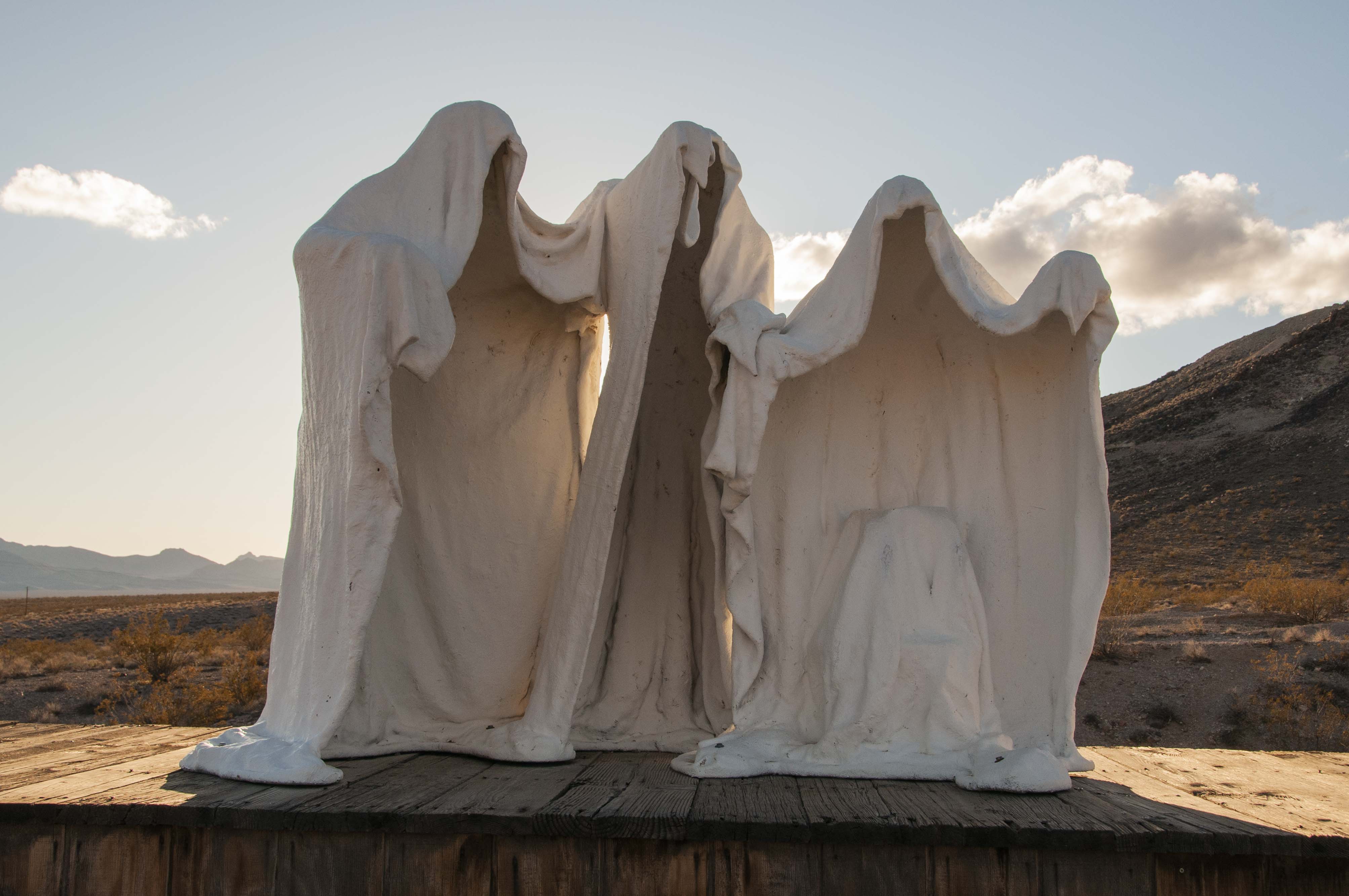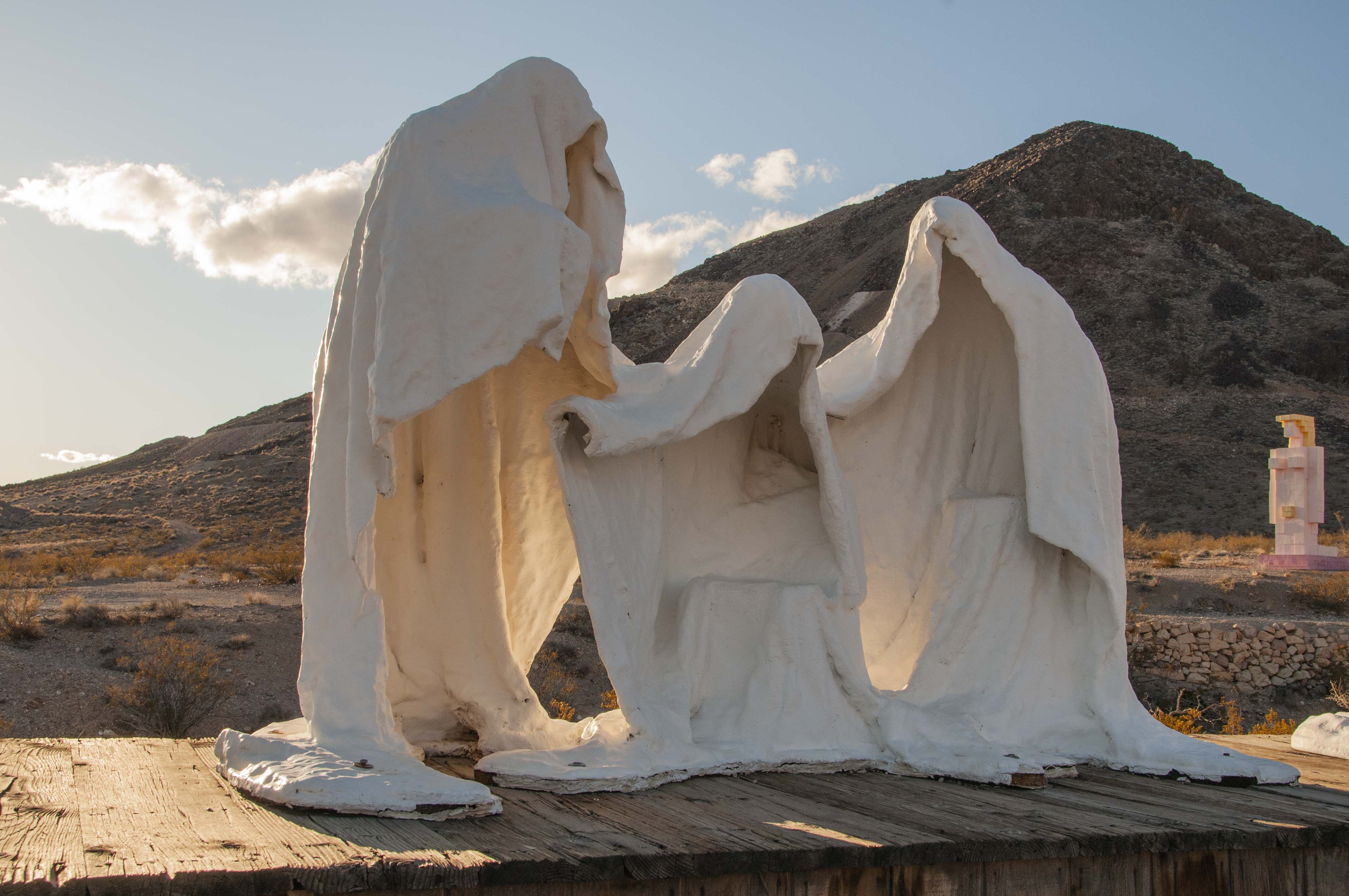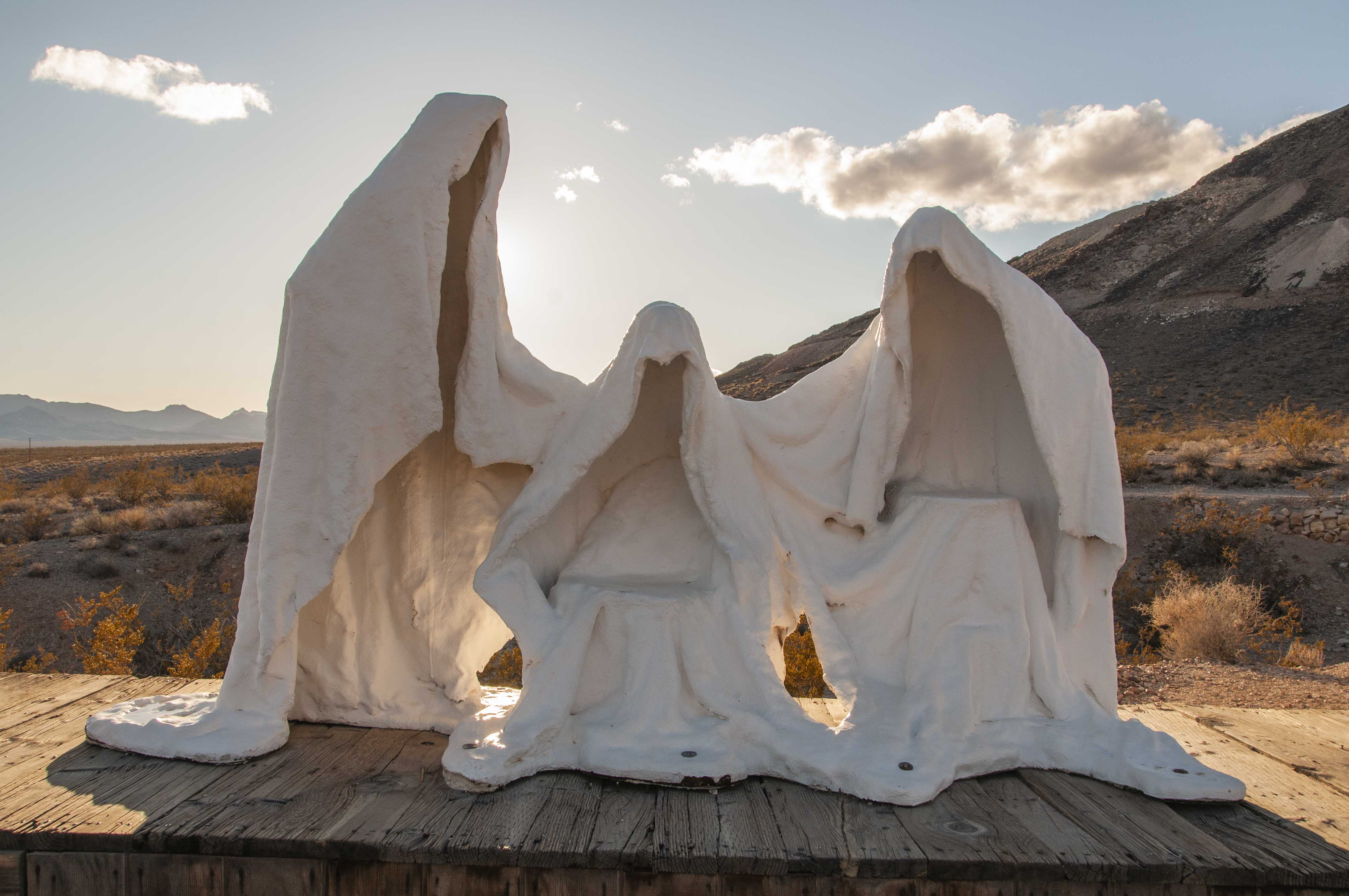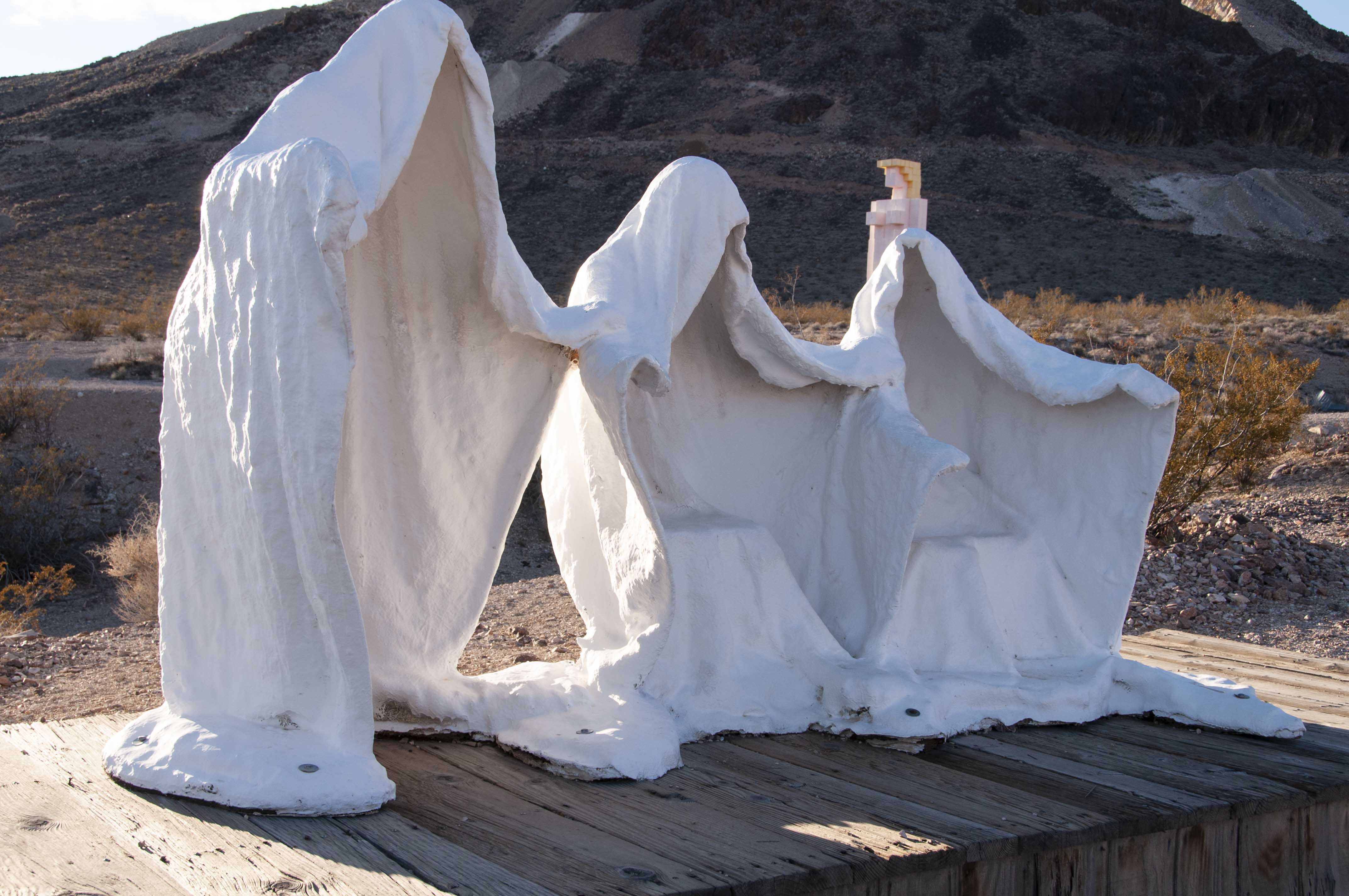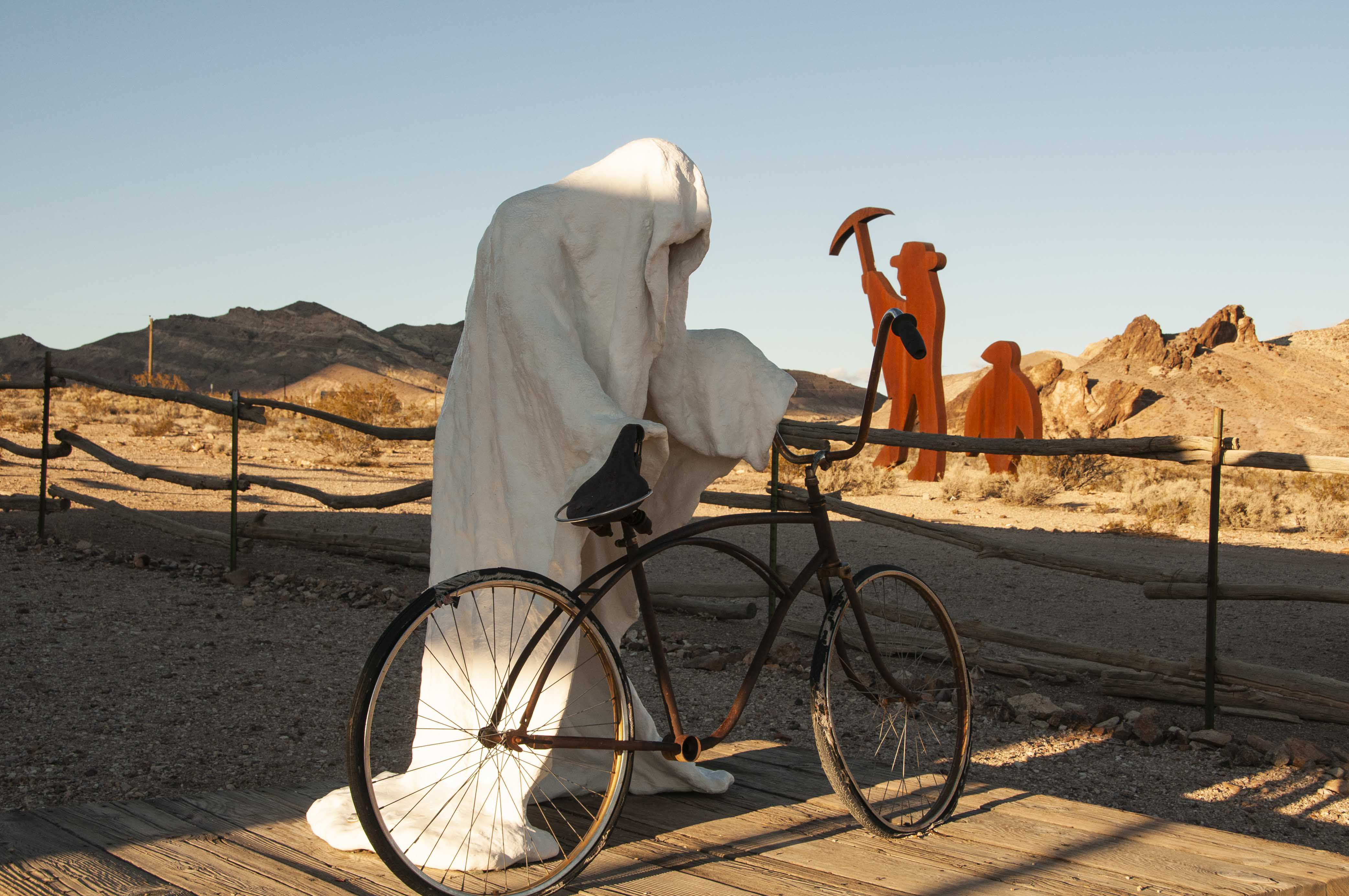Rhyolite, NV
Rhyolite is a ghost town in Nevada located just off NV SR 374 about midway between the town of Beatty and
Death Valley National Park. Rhyolite began as a mining camp in early 1905 and rapidly became a boomtown because
of its proximity to the Montgomery Shoshone Mine, the major gold producing mine in the region.
At its peak Rhyolite had electricity, a train station, a bank and stock exchange, a school for 250 students,
hotels, stores, foundries, machine shops, and an ice plant. But the financial panic of 1907 marked the beginning
of the end for Rhyolite. Mines closed and banks failed. The Montgomery Shoshone mine closed in 1911, and in 1916
the power was finally turned off in the town.
Today there are only remnants left of the once thriving town. Part
of the 3-story John S. Cook and Co. Bank building is still standing, as is part of the Porter general store with its
two large front windows. The school building is in a little better shape. The train station, now privately owned,
has survived largely intact. There is a caboose across from the station which served as a house in the glory days
of Rhyolite, then became a gas station during the 1920s tourist boom. Rhyolite is currently under the jurisdiction of
the Bureau of Land Management (BLM).
Goldwell Open Air Museum
The Goldwell Open Air Museum is located in the Mojave Desert just south of Rhyolite ghost town. Goldwell Museum is
a non-profit outdoor gallery and museum. It was founded in 2000 by a group of Belgian artists after the death
of Albert Szukalski, an artist who created the first outdoor sculptures at the site in 1984. The museum also
offers artist residency programs at the nearby Red Barn Art Center.
Szukalski is noted for his sculptures made
from plaster-soaked burlap draped over live models and hardened into free-standing forms. Several other artists
have since contributed works to the museum.
Use the form on the Home Page to submit comments, questions, or suggestions. TD Productions Copyright © 2019
